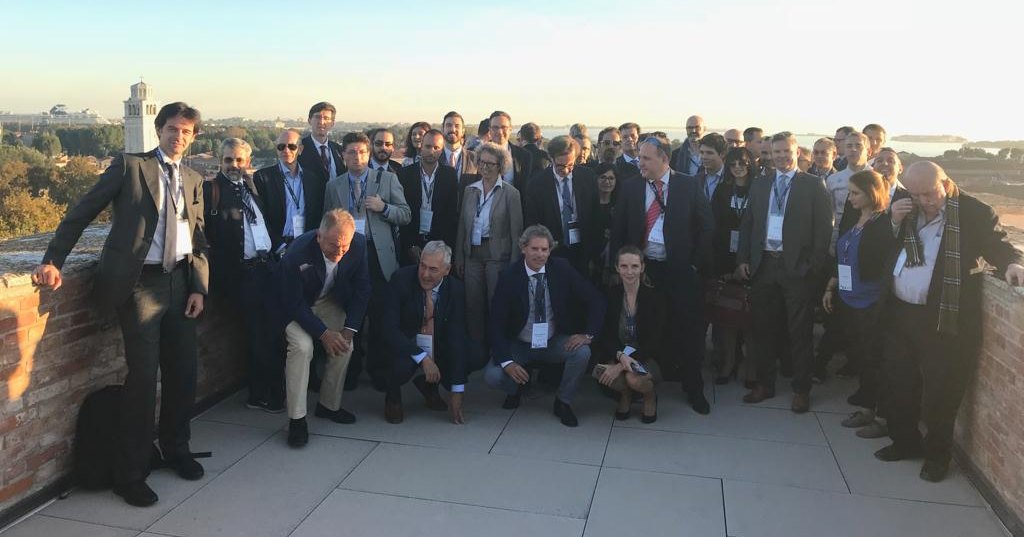
The Evolution of the Calypso Standard: Working Today to Meet Tomorrow’s Needs
- By Vappereau Philippe
- In
Nothing in the world of technology stays static. Everything must evolve. Transport ticketing is no different. Calypso is no different.
As a community, we have evolved beyond all recognition since our inception in the 1990s. We recognise that today the ticketing community has many options on how to deliver sophisticated and engaging transport ticketing systems.
At Calypso Network Association (CNA) we want to guarantee the sustainability of the Calypso standard. I wanted to take a moment to summarise and share with you our progressive evolution.
Today’s market
Calypso was designed by transport operators and authorities on three founding principles: security, interoperability and openness. This is the DNA of Calypso.
The ticketing context was very different from the one we know today. The main challenge was to replace magnetic ticketing systems, which are very expensive to maintain. But Calypso was already going beyond that: by relying on secure microprocessor technology, it aimed to implement elaborate fare systems, facilitating access to public transport, and multiservice.
The ticketing systems were all part of a scheme now known as «closed loop», with a card-centric architecture. If an operator chose a contactless system, the only questions to be asked were the choice of the card, Calypso or Mifare, and whether to use a mixed magnetic/contactless or a full contactless system.
Twenty-five years later, the context is totally different. The needs and the ticketing ecosystem have evolved:
- There are multiple choices between technologies (radio, NFC, QR Code, Bluetooth, …) and architectures (card centric, system centric or ABT),
- Open payment is an alternative to closed loop systems,
- Many new players are now on the ticketing market, banking operators, Visa, Mastercard, Gafa, startups, etc.
There are 4 key steps CNA is implementing to guarantee the durability of the Calypso standard, in order to safeguard the investments of all those who have deployed it or supply it.
1. Evolving the offer to meet a range of needs
CNA has implemented an evolution programme since 2017 to achieve the:
- Development of a range of cards, Prime, Light, Basic, allowing Calypso to cover all types of use, and this with a single software in the validator, which only Calypso offers. The functionalities and the costs are reflective of their use.
- Enrichment of card software sources, whose interoperability is now guaranteed by the implementation of a mandatory certification process. To date 38 cards are certified, either in native mode or on the JavaCard platform. This has considerably increased the openness of Calypso.
- Extension of the principle of opening Calypso to other levels of a ticketing system, through the open-source approach and creation of Eclipse Keyple SDK for terminals. Access to Calypso is now available to many new actors, specifically in the framework of MaaS.
- Adaptation of Calypso to all forms of mobile ticketing in response to the demand for dematerialisation.
- Opening of Calypso to central system architectures, or ABT.
2. Encouraging multiple suppliers to drive competition
In the same period, the openness of the Calypso standard has also increased in terms of electronic components. For about 15 years, Calypso had only one source of components, STMicroelectronics. The arrival on the market of new cards based on Infineon components means that Calypso is now the only multi-source ticketing solution in terms of components, not just in principle but in reality. And Calypso is now also available on NXP type A devices, either natively or on the JavaCard platform.
3. Securing financial independence to ensure neutrality
For CNA, ensuring openness also means ensuring financial independence to make sure we don’t fall under the thumb of special interests and to remain driven by the needs of our community.
In 2019, we implemented a brand license, linked to the certification of Calypso products, which guarantees buyers their compatibility regardless of the supplier, and protects manufacturers against unfair competition from counterfeit products. This is a sustainable and transparent replacement to the revenue generated from patents, which comes to an end in 2021.
This new license offered an opportunity to considerably reduce the amount of unit royalties, to allow new players to acquire it. This supports CNA’s ambition to increase the overall reach of the Calypso installed base and encourage new users. All industry players have supported this approach.
4. Establishing collaborations to simplify the landscape
Our approach is working. Between 2016 and 2020 we have expanded from 40 to 105 members in the association, from 9 to 38 certified products, from 14 to 29 million Calypso cards sold in a year.
But we need to go even further, because the ticketing market is fragmented, with a multiplication of solutions. We need to bring more simplicity and coherence to our ticketing systems. The Calypso value is not only ergonomic performance for the customer and security, but also sovereignty for the transport authorities because our solution allows them to keep complete control of their ticketing.
To achieve our goals, we cannot work in isolation and industry collaboration is key. This is the meaning of our partnership strategy with the OSPT Alliance – a body which has a diverse membership base but the same vision as Calypso – to provide the market with a true open standard.
Working with all our partners, CNA will continue to evolve the Calypso standard so that it remains permanently in phase with the needs of users, yet without losing the essence of our DNA. As we look to the future, CNA is opening up contactless ticketing, with even greater ambition.
Not a member? Join us today.

